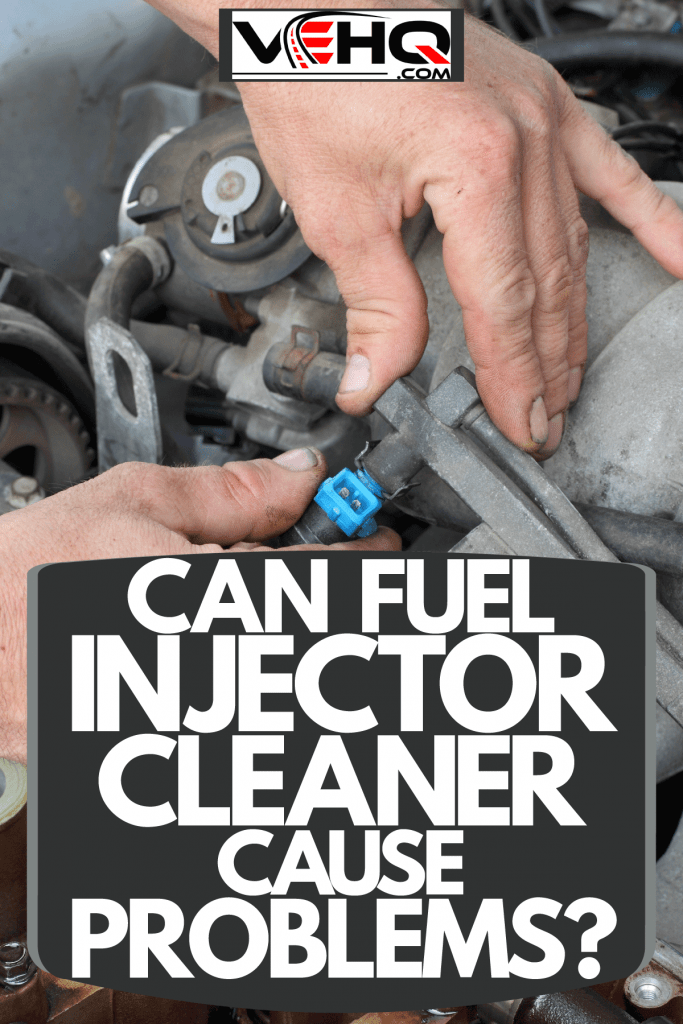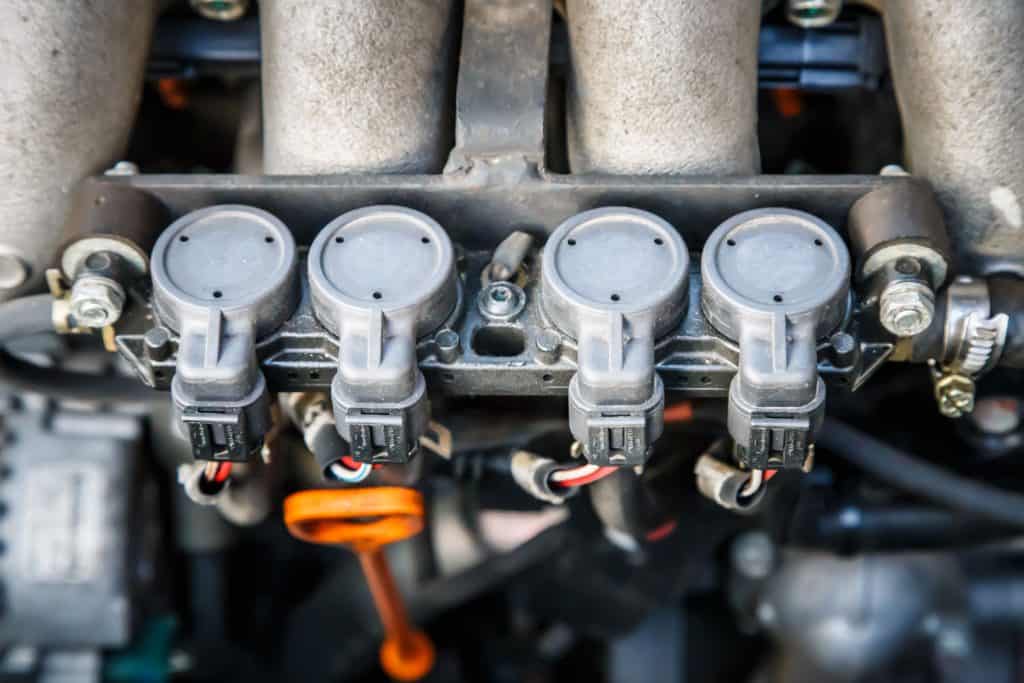Many modern vehicles no longer have a carburetor but utilize a fuel injector instead. After logging so many miles, it is recommended to give your car fuel injector cleaner to keep your ride in top shape and clear up problems like clogs, a rough starting engine, or idling. However, can fuel injector cleaner be the catalyst for car problems? We researched what experts had to say about fuel injector cleaner and related car concerns. Discover how to identify common problems and if a cleaner is a culprit.
Over time a fuel injector can build up deposits which lead to clogs and poor performance. Many fuel injector cleaners claim they can remove buildup within a fuel injector. However, if a cleaner is not compatible with the car's system or is low-quality, it might not dissolve particulates sufficiently and trigger problems. The average cleaner takes about a week to see a visible impact on the engine and vehicle performance. Check out the following potential issues caused by a cleaner:
- Vehicle still suffering from clogs in the fuel system
- Damage to the fuel pump and tank lining
- Incompatible fuel tank cleaner used
- Damage to sensors
Learn more about fuel injector function, warning signs your car has trouble, cleaners, and ensuring your vehicle is in good working order.
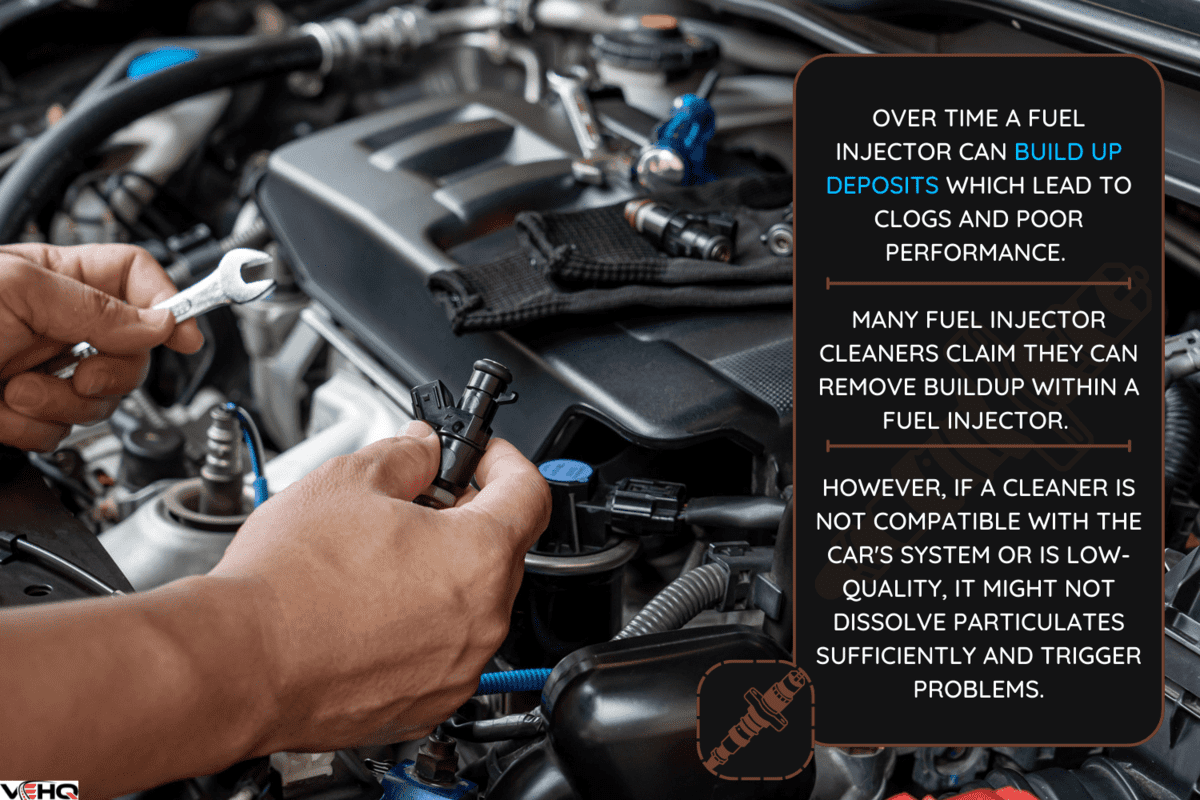
Go Under The Hood
The engine is the heart of a car, one of the most visible car parts under the hood, and delivers much-needed horsepower to take on the road. However, the fuel injector helps optimize the delivery and combustion of fuel as it is fed into the engine. Giving your vehicle fuel injector cleaner every 1,500 to 3,000 miles logged or following an oil change can prove helpful.
It is possible to drive for a while with a faulty fuel injector, but that can lead to increased fuel consumption, a smoky tailpipe, and problems when accelerating. Sometimes a problem isn't the result of the fuel injector but because of damaged sensors, a leak, or other issues. After using a cleaner, if you still experience issues, take your car to a mechanic or dealer.
Symptoms of Fuel Injector Issues
If you notice the following problems, it's time to look into the fuel injector.
- You suddenly begin experiencing significantly lower gas mileage
- The engine often misfires
- Idling becomes incredibly rough, and the vehicle vibrates
- The vehicle won't start
- Acceleration is slowed, and the RPM reading lags or is off
- You smell fuel when in your car due to a possible leak or an open area
- The check engine light comes on because too little or too much fuel delivered (also a sensor issue)
- Your car failed the emissions test
- Visibly increased car pollution output and exhaust
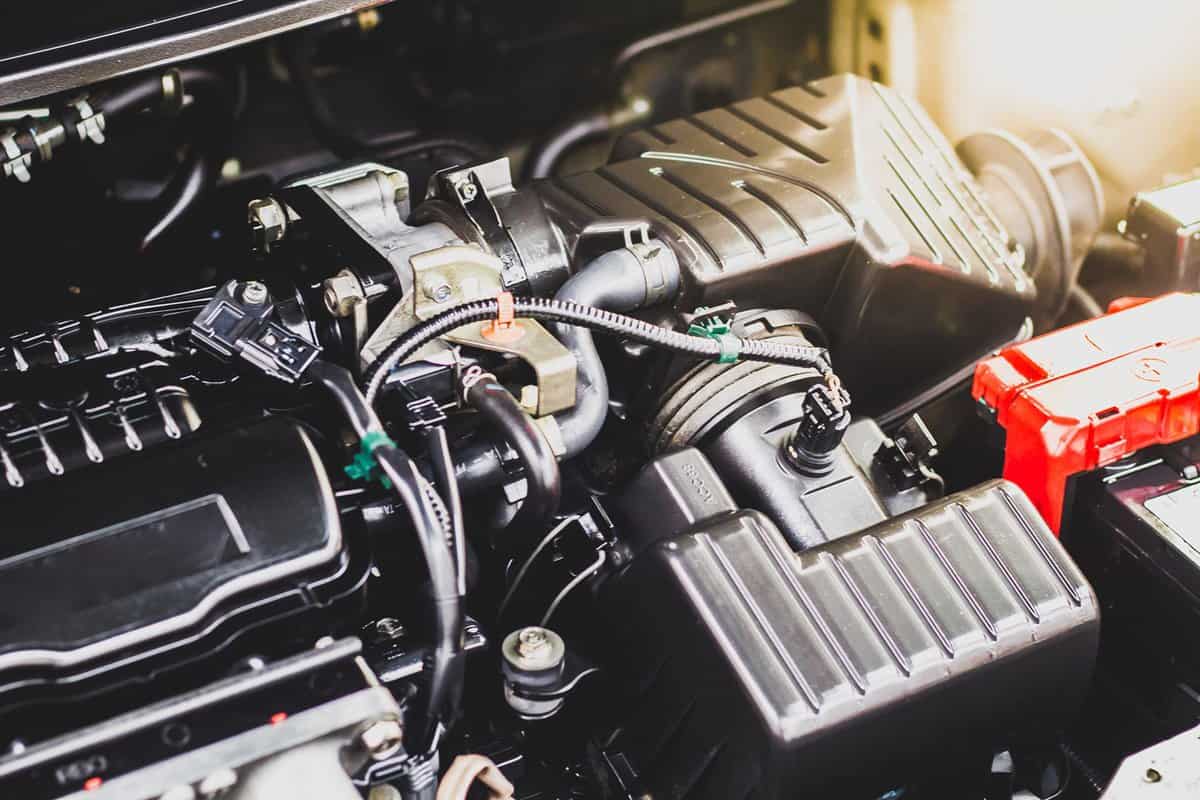
Following using fuel injector cleaner, your vehicle should show a noticeable improvement within 50 miles. Make sure to follow the manufacturer's instructions as fuel injector cleaners work in diluted amounts. Water is the first thing that will be removed from the fuel delivery system. Note the chemicals inside a cleaner used to break down clog-causing debris and buildup are pushed out a few days to a week.
Lower-quality cleaners may only break debris off of the inside of the injector and not fully dissolve them. Make sure to add a cleaner, so it intermingles with the fuel. A cleaner can be added to a half-full, full tank or right before filling up on gas. No matter what type of product you choose, it is good to be familiar with specific problems related to using a fuel injector cleaner.
Insufferable Clogs
Some cleaners only loosen up debris and pollutants inside the injector, releasing them throughout the fuel system, but don't dissolve them. If a cleaner isn't powerful enough or the formula isn't suitable for your car, you can still have clogs.
Damaged Fuel Pump And Tank Lining
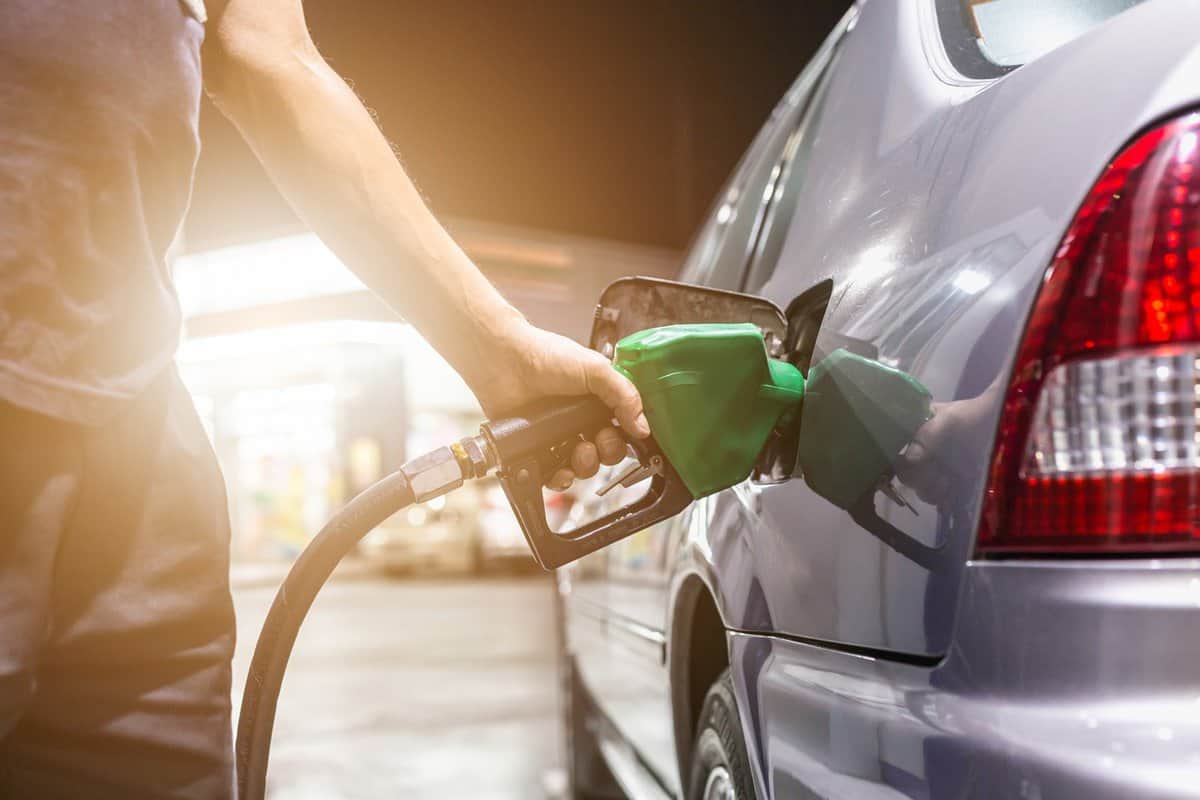
Look over the ingredients in any product you add to your vehicle. All cleaners are not created equal and can potentially damage the fuel tank lining or exacerbate existing problems with a fuel pump if it contains corrosive agents.
Wrong Cleaner For Engine Type
Accidents happen, and if you input a gas-formulated product into a diesel system, you can create problems. Thankfully, using a small amount of injector cleaner won't be too noticeable. However, a large amount of the wrong additives to a car's fuel system calls for draining the internal system. Diesel-powered vehicles use cleaners more often. Be mindful of the ingredients used in a cleaner, as strong solvents can potentially cause harm.
Sensor Damage
If a fuel injector cleaner contains any additives that are not designed to be sensor-safe, it can lead to malfunctions or damage oxygen sensors. Oily substances like seafoam or MMO can increase the attraction of carbon and burnt fuel to a sensor, hampering its performance. A damaged O2 sensor can cause engine hesitation, black exhaust, a loss of fuel efficiency, and the check engine light may come on.
What Happens If You Put Too Much Fuel Injector Cleaner?
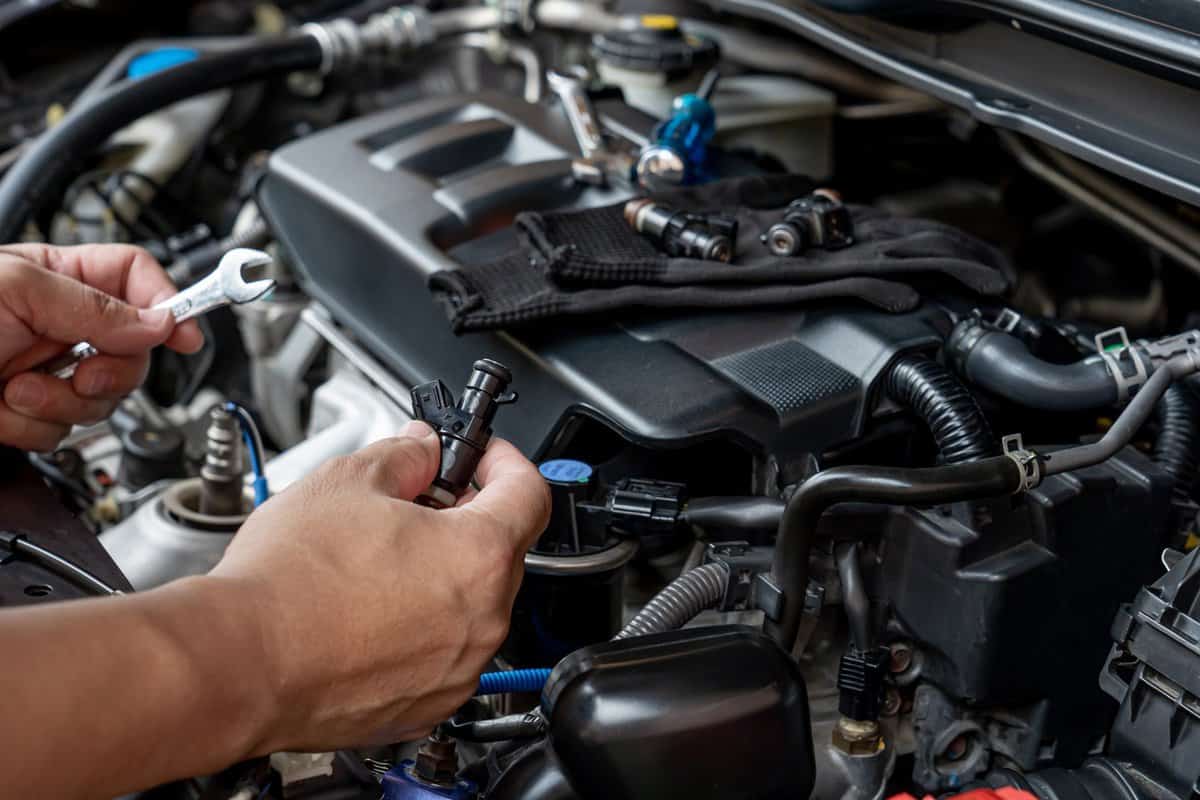
It is possible to give a car too much of a good thing and add too much fuel injector cleaner. If this happens, you can risk damaging the lining of the fuel tank. Also, you may notice that there is lowered engine performance and fuel efficiency. Run your car until you get the gas tank to about a quarter full and add some fresh petrol to even things out.
Some drivers have concerns that using too much cleaner can increase the viscosity of the motor oil, but there is no solid proof. Check the ingredients, as most cleaners don't have corrosive solvents that could eat away at seals or hoses.
Can Fuel Injector Cleaner Damage The Fuel Pump?
It is not likely that a fuel injector cleaner will damage the fuel pump, as it lubricates and gently removes sediment, buildup, and clogs. However, be aware of whether your vehicle has a modern electric system or an older one that can be manually cleaned out. It is possible that fuel injector cleaner can interfere with the catalytic converter or O2 sensors.
Read more: Leaking Fuel Injector – Symptoms And What To Do
How Often Can I Use Fuel Injector Cleaner?
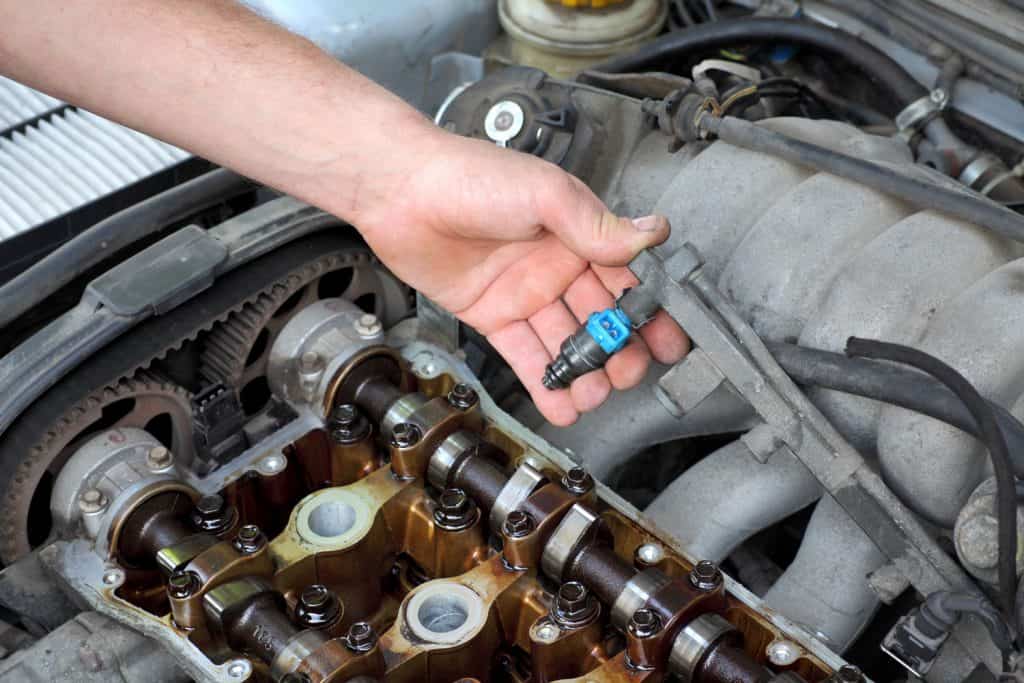
You can use a fuel injector cleaner every time you fill up at the gas station, but it is unnecessary. Although cleaners can help remove buildup and improve engine performance and fuel delivery, using a cleaner once a month is sufficient. A fuel injector cleaner is not only helpful for cleaning the internal system of the injector but improves the fuel system of your car. Add cleaner according to the manufacturer's instructions, and then add gas to the tank until full.
Use cleaner for every tank in a diesel injector and every 1,550 miles for a gas injector. Over time the engine collects debris, varnish, and carbon deposits that can clog the injector, require more gas, and emit pollutants. Using a cleaner frequently helps prevent damage to the fuel injector, reduces problems with the engine and fuel system, and improves a car's longevity.
Read more: How Often Should You Use Fuel Injector Cleaner?
Does Fuel Injector Cleaner Really Work?
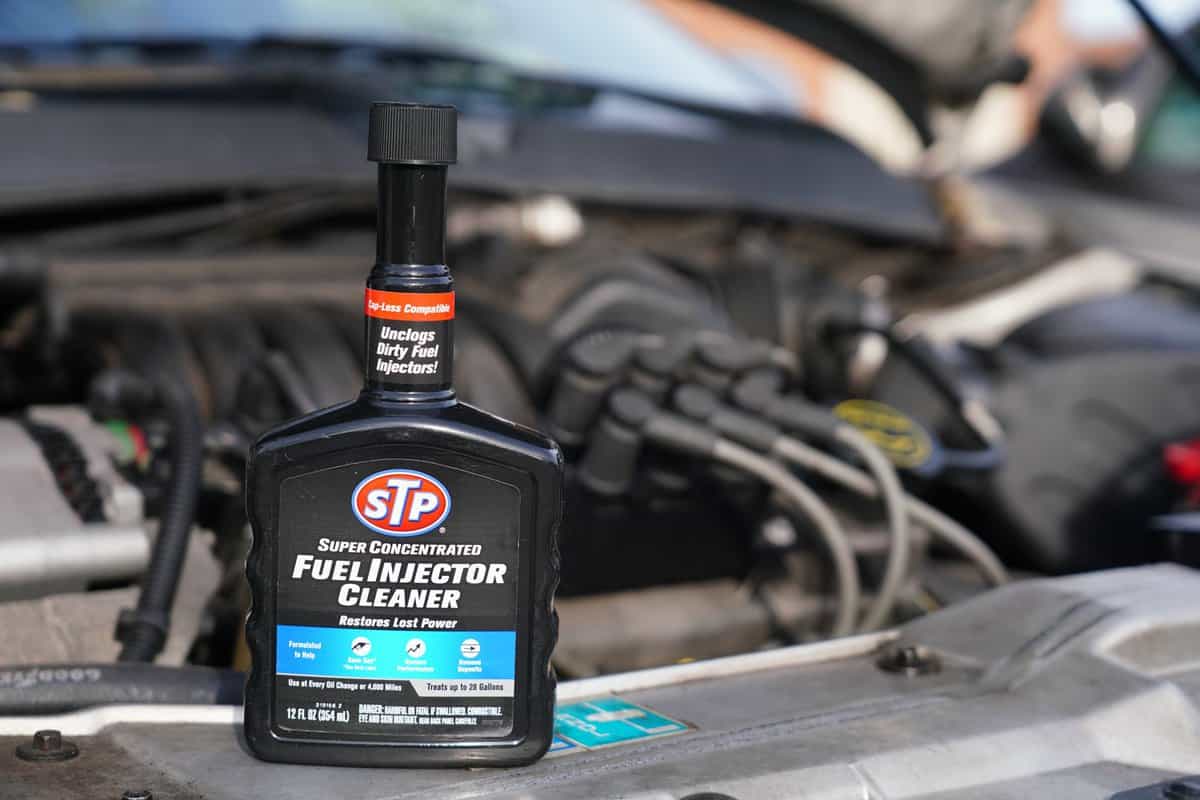
Many drivers swear by using fuel injector cleaner regularly to improve engine performance, fuel efficiency and optimize their car. However, depending on how heavily blocked and dirty the injector and fuel system is, using a cleaner one time may not be strong enough to remove stubborn deposits. To reap the benefits of a cleaner, it is best to add some to the tank frequently to reduce buildup from taking hold and release any debris that is present.
What Kinds Of Fuel Injector Cleaner Should I Use?
If you have a car or another motor vehicle that runs on gasoline, choosing Chevron Techron Concentrate Plus cleaner for fuel systems works on motorcycles, trucks, cars, and SUVs. It is a popular cleaner because of its patented formula, including powerful detergents to break up and clean fuel systems, so vehicles run smoother, faster, and more efficiently.
Drivers love this cleaner because it not only covers fuel injectors but takes care of the fuel lines, fuel rail, and fuel pump. Be advised that this cleaner contains PEA or polyetheramine to remove carbon deposits.
Check out this powerful fuel system cleaner on Amazon.
See this cleaner for diesel and gasoline engines on Amazon.
Check out this high-quality cleaner on Amazon.
In Closing
We hope you've learned how fuel injector cleaner impacts your car's performance. Also, you should feel more confident recognizing common problems related to the fuel system and remedies. Utilizing a fuel injector cleaner is recommended every so often to improve your engine, fuel delivery, and smooth out problems.
However, it is possible that cleaners could cause a problem rather than solve them. When in doubt, contact a certified mechanic or car dealer to give your vehicle a check-up.
Before you go, don't miss out on these other informative articles.
Read more: Do Fuel Injector Cleaners Expire?
Read more: Does Fuel Injection Increase Horsepower?
